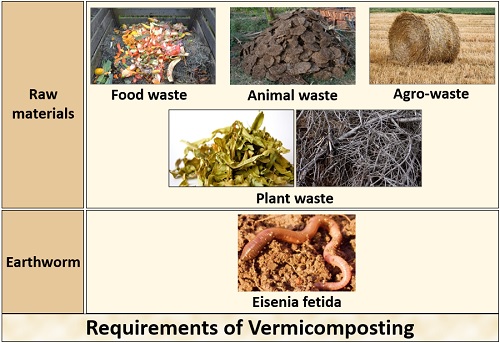Vermicompost, also known as worm compost or worm castings, is a type of compost produced by the activity of worms, specifically red wigglers (Eisenia fetida). These worms consume organic materials such as food scraps, yard waste, and paper, and then excrete nutrient-rich castings that are high in beneficial microorganisms and plant nutrients.
Vermicomposting is a simple and efficient process that can be done on a small scale, making it a popular choice for home and community gardens. A vermicomposter can be as simple as a plastic container with holes drilled in the lid for air circulation, filled with bedding material (such as shredded newspaper or coconut coir) and worms. The organic material is added to the container, and the worms will consume it and produce the nutrient-rich castings.
The benefits of vermicompost are numerous. The castings produced by worms are rich in essential plant nutrients such as nitrogen, phosphorus, and potassium, as well as micronutrients such as calcium and magnesium. They also contain beneficial microorganisms that can help improve soil structure, increase water-holding capacity, and promote plant growth. Additionally, vermicompost is a natural pest repellent, and can help reduce the need for chemical pesticides.
Vermicompost can be used in a variety of ways in the garden. It can be mixed into the soil before planting to improve soil fertility, or it can be used as a top dressing for established plants. It can also be used as a foliar spray to give plants a boost of nutrients. Additionally, vermicompost tea can be made by steeping vermicompost in water, and then used as a soil drench or foliar spray.
One important thing to keep in mind when vermicomposting is to maintain the right balance of materials, a good bedding, moisture and temperature. The worms need a balanced ratio of green materials (high in nitrogen) and brown materials (high in carbon) to survive. The bedding should be moist but not waterlogged, and the temperature should be between 55-77°F (13-25°C) for optimal worm activity.
In conclusion, vermicomposting is an easy and efficient way to produce nutrient-rich compost that can benefit your garden in many ways. It is simple to do, and it can be done on a small scale, making it a great option for home and community gardens. By providing essential plant nutrients, beneficial microorganisms, and natural pest control, vermicompost can help improve soil health, increase water-holding capacity and promote plant growth.
Keywords: Vermicompost, worm compost, worm castings, red wigglers, organic materials, food scraps, yard waste, paper, nutrient-rich castings, beneficial microorganisms, plant nutrients, nitrogen, phosphorus, potassium, micronutrients, calcium, magnesium, natural pest repellent, chemical pesticides, soil fertility, top dressing, foliar spray, vermicompost tea, soil drench, bedding material, shredded newspaper, coconut coir, temperature, moisture, carbon, nitrogen, home and community gardening, soil health, water-holding capacity, plant growth

